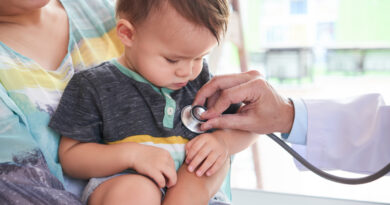How to become a pediatric nurse
There are different ways to become a pediatric nurse, this varies from country to country, as governments are in charge of implementing the regulations of the educational system. The following article will generally explain the process to become a pediatric nurse.
Make sure you meet the required skills
Before you start training as a pediatric nurse, you need to find out if you meet the skills required for this profession. This means that in addition to learning how to care for children, you also need to have empathy, good communication skills, teamwork, and the strength to cope with adversity and loss.
The best way to know if you meet the basic standards of this profession is to work as a volunteer in a health center. Nowadays many people are requested to collaborate in health care, there are many opportunities to help and learn what the work environment is like.
Training as a nurse
The process of becoming a nurse varies from country to country, in some cases it is necessary to go to college and enroll in a Bachelor of Science in Nursing (BSN) program. Although the academic training to become a pediatric nurse requires a lot of study time, anyone who really wants to become a pediatric nurse can become a registered nurse.
Enrollment in a Bachelor of Science in Nursing program requires only a high school diploma or GED with a GPA of 2.5 or higher and a passing score on the ATI-TEAS entrance exam.
Earn your BSN degree
In order to obtain a Bachelor of Science in Nursing, it is necessary to fulfill some general education requirements, such as statistics, mathematics, communication, psychology and literature. Although these subjects are not directly related to medicine or nursing, they will develop analytical, critical, communication and conflict resolution skills, which are essential for anyone wishing to become a pediatric nurse. In this way you will be able to communicate with younger patients and establish a diagnosis.
The main focus of the BSN program is to involve learning a wide variety of aspects that make up the nursing profession. Some classes will teach you how to assess patients of all ages, as well as treat various illnesses, including the most common pediatric conditions. You will also learn about pharmacology, as well as health care law and ethics to support children who may be unprotected in dangerous or unstable environments. In addition, you will also be required to study medical sciences in relation to microbiology, human development, anatomy and nutrition.
Finally, to obtain a Bachelor of Science in Nursing, it is necessary to complete the final clinical program, which will give you experience in the work field by caring for patients with real problems.
Becoming licensed as a registered nurse
This requires passing the NCLEX-RN exam, which is essential in order to become a pediatric nurse practitioner and thus become licensed as a registered nurse. The NCLEX is a computer-adaptive test, which means that the number of questions and the time it takes will depend on the number of correct answers. The maximum number of questions on the test is approximately 265, although if you answer correctly the exam may end after answering 75 questions.
Each participant will have six hours in total to complete the test, plus two optional breaks, one at the two hour mark and one at the three hour and thirty minute mark.
Get experience as a licensed nurse
Since the NCLEX is nationally recognized, once passed you will be able to get a nursing license in any state you wish to practice. Any experience will be valuable for professional training and improving nursing skills. For this reason, working in children’s hospitals or pediatric clinics will be ideal for those who wish to become pediatric nurses. The more experience working with children, the easier it will be to find employers.
When it comes to nursing license renewal, requirements may vary in some states. Generally, though, it must be renewed every two to three years. There should be no problem as long as you are actively working in continuing education programs (MSN) or practicing as an RN.
Earn a graduate degree in nursing
Because advanced practice registered nurses often operate with little supervision, those who wish to train as pediatric nurses should pursue a postsecondary nursing degree, usually a master’s of science in nursing (MSN).
Many universities and colleges across the country offer MSN programs specifically geared toward pediatric nursing, as these will build on BSN studies and clinical experience gained as an RN. When applying for MSN programs, it is necessary to choose an acute or primary care specialization.
Those who specialize in pediatric acute care nursing work in urgent care clinics or emergency rooms, dealing with injuries, infections or other immediate health problems. On the other hand, primary care pediatric nurses take care of general wellness and focus on preventive medicine.
Generally, obtaining a graduate degree in nursing requires two more years of school. However, there are also some programs that complete the training in 18 months.
Become certified as a pediatric nurse practitioner
Upon completion of the MSN program in pediatric nursing, you may choose to become certified as a pediatric nurse practitioner. To do so, you will need to take the Pediatric Nurse Practitioner Certification Board certification test.
Upon passing the exam, you will finally be able to practice as a certified pediatric nurse practitioner (CPNP), specializing in acute or primary care, depending on the graduate program you have completed.
You can then become a certified pediatric nurse practitioner.




